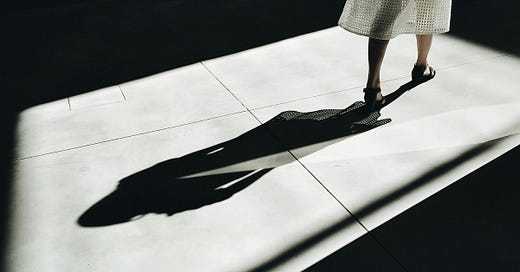It’s Maundy Thursday in the Christian faith—Jueves Santo in the Semana Santa calendar here in Colombia—and a time of rest and reflection for many.
Nevertheless, the news never takes a beat, and this week it’s covered the spectrum of absurd, painful, petty, and despairing. Amid all the vulgar noise from US politics, the struggle for food aid and ceasefire while the world bears witness to a mess of shifting global alliances, and a whirlwind of conspiracy theories around various international tragedies… the deaths of six people still stood out for me.
We don’t know all of their names yet, but they were construction workers on night shift on the Baltimore bridge, filling potholes when the cargo ship Dali sent a mayday to local authorities. That message came in time to reroute surface traffic, but for reasons still under investigation, the warning wasn’t passed on to the workers in time. Then, because the Dali struck the bridge at around 1:30 a.m., it was dark and the water was too full of debris to conduct all search and rescue operations right away.
Two of their bodies have been recovered as of this post.
These workers came from El Salvador, Honduras, Mexico, and Guatemala, looking for a better life. Maynor Yassir Suazo Sandoval, 38, was a father of two. Miguel Luna had three children, and like Maynor had been in the US for close to 20 years. Dorlian Castillo Cabrera had been working for the company for three years, in part to support his mother in Guatemala. Alejandro Hernandez Fuentes, 35, had small children and was working with a family member, who survived.
Future crews used to rebuild the bridge will also be filled with Latino immigrants—that’s just the population demographics, and the nature of local contracting.
Nevertheless, the initial news cycle around this tragedy was seized by conspiracy theories that traded on xenophobia, and invited pundits to imagine that this incident reflected a need to tighten security against all foreign threats. Conversely, some online talked about how it wasn’t a big deal because “only” a few workers died.
Whatever’s going on in our Western societies these days (and there is a lot), it’s highlighting a profound empathy gap in the way we talk about the loss of human life, and about the traumas that shape so many others.
And that can’t help but also reflect a body of trauma in ourselves.
How are wounded people supposed to meet the wounds of the greater world?
That’s what we’ll be talking about today, below the fold for paid subscribers.
But I wish everyone else reading this great kindness with themselves, too.
Whenever you get swept up in sensational news cycles, especially the ones filled with claims meant to agitate and estrange you further from your fellow citizens, you’re being wounded, too. Such incendiary presentations of the news, on legacy and social media alike, do not empower so much as weaponize.
Step away from breaking news—and into local action—as often as you can.
Remember that you are human, too.
Keep reading with a 7-day free trial
Subscribe to Better Worlds Theory to keep reading this post and get 7 days of free access to the full post archives.





